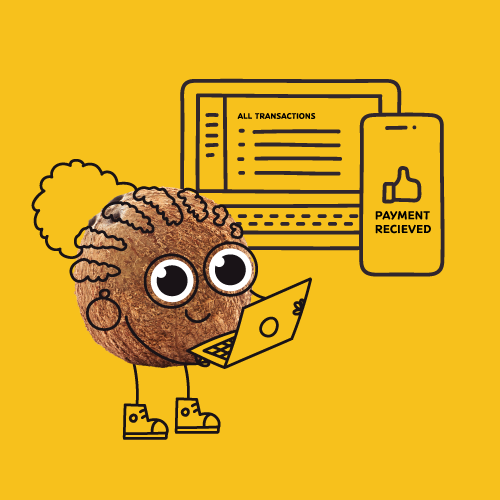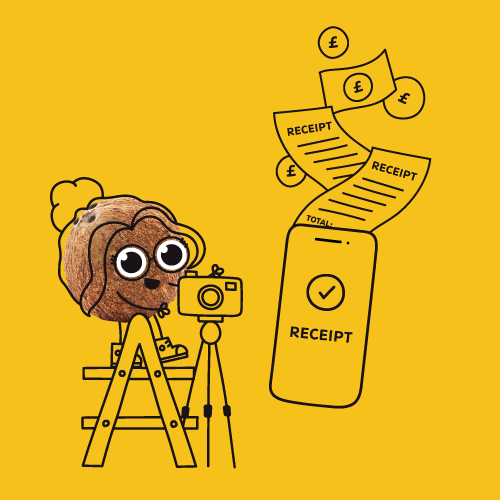Life as a freelancer has many perks, but doing your own taxes sure isn’t one of them. Indeed, a recent report commissioned by the Government named tax one of the top challenges faced by freelancers in the UK. And it isn’t hard to understand why.Getting all the right paperwork together is hardly straightforward, especially if accounting isn’t your forte. And, over the Christmas period, you’ve probably worked less and splurged on gifts for your loved ones and yourself. A hefty tax bill on the back of your festive spending spree is a financial double-whammy.But, even with these challenges, figuring out and settling your debt with the taxman doesn’t have to be stressful. In this post, we’ll look at how you can prepare for tax time without ripping your hair out, so you can go back to your afternoon nap (or Netflix marathon) pronto.
What’s My Tax Liability As A Freelancer?
At the risk of stating the obvious, tax isn’t due on all your income, but only on your actual profits. Besides the costs you incur on clients’ behalf, you can also deduct expenses – your mobile phone bill, utilities and even a chunk of your rent, for instance – if they’re related to your business activities.Determining what you can and cannot deduct as a business expense isn’t always easy. Many freelancers report paying too much tax precisely because they’ve miscalculated their expenses. This is one of the reasons why getting an accounting professional to help you with your tax return can help.Different rules will also apply depending on whether you do business as a sole trader or as a limited liability company.
Taxation as a sole trader
Like employees, sole traders have a tax-free personal allowance. Anything above this threshold is taxed at progressively higher rates. You don’t get a personal allowance if you earn more than £122,000 in a year (one can dream, right?).The tax bands for 2016/17 are:ProfitApplicable Tax Rateup to £11,0000%£11,001 – £43,00020%£43,001 – £150,00040%£150,001 and over45%
National Insurance
Of course, you’ll need to take your National Insurance (NI) contributions into account too, as these also form part of your tax bill.As a freelancer, you pay two types of NI: Class 2 and Class 4. Class 2 NI is £2.80 a week. It’s mandatory if you make more than £5,965 a year, but you can also pay it voluntarily if you make less.Class 4 NI is payable in addition to Class 2 NI on profits over £8,060. The amount due is calculated as a percentage of your profits:
- 9% on profits between £8,060 and £43,000; and
- 2% on profits over £43,000
Taxation as a limited liability companyRunning a company is more costly and involves more paperwork than being a sole trader, but it may be more tax-efficient if you’ve reached a certain level of profitability. Working out your taxes is also slightly more complicated.You’re liable on two fronts:
- your company’s profits (corporation tax); and
- your compensation as an employee of your company.
Corporation tax is currently 20% of your company’s profits.Your personal salary is taxed the same way as a sole trader’s: £11,000 tax-free and progressively higher rates thereafter. If you pay yourself a dividend in excess of £5,000, additional rates of tax will also apply.Your personal tax and NI contributions are cut out of your paycheck each month. Of course, you also happen to be the company, so you’re the one who’ll have to make these deductions via the PAYE system and send them over to the HMRC each month.The fun never stops, does it?
How Do I Prepare For Tax Time?
Don’t underestimate the power of having everything ready ahead of time. January 31 is the latest you can file your taxes, but nothing stops you from filing earlier. Even if you’d rather put it off til January, you should at least be prepared.
If possible, consult with an accountant
A great accountant can help you keep your tax bill as low as possible by:
- helping you decide the most tax-efficient way to do business;
- advising on which expenses to deduct and helping you make precise calculations;
- advising on other ways you can reduce your tax bill, such as putting a portion of your earnings in a pension plan or ISA.
Keep track of your cash flow
If you keep track of your incomings and outgoings consistently during the year, completing your tax return will be much simpler, because all the information you need will be readily available in one place. Most accounting firms offer bookkeeping services, while some freelancers prefer to do it themselves using a spreadsheet or via accounting software.But whether you choose to hire someone, do your own bookkeeping or do no bookkeeping at all, you should really keep all of your freelance earnings in a separate bank account. This keeps everything organised and makes it easier and quicker to make sense of your business’ incomings and outgoings.Monizo categorises all your income and expenses so you can see where your money’s going at a glance and in real time. You can also upload and store your receipts online, which will cut down on paperwork and make your life that much easier.
Understand your income isn’t all yours
As unfair as it might seem, you’re going to have to give a chunk of your earnings to the HMRC, whether you like it or not. With this in mind, it’s a good idea to periodically set aside some of your money on account of your tax bill. This will help you spread the cost and avoid sudden financial shocks.Which brings us to our next point.
How Do I Budget For Taxes?
Budgeting for taxes as a freelancer is tricky, because you’ll only know exactly how much you owe once the financial year’s over. However, by following these strategies, you can create a decent buffer that covers a good portion of your tax bill.For best results, get separate bank accounts for your business and personal life. This will keep you organised and make it harder to dip into your tax money.
Put aside 30% of your income each month
This will be rough at first, but it’s also the easiest way to save. It eliminates guesswork and complicated calculations, ensuring you always save a proportional amount.To use this method, just add up your monthly income, deduct your expenses and take away 30%. Since your profit will probably fluctuate from month to month, you may even have some money left over after settling your bill.
Use each month’s profits as a benchmark
If putting away 30% each month seems too arbitrary, you can make a more accurate calculation using the month’s profits as a benchmark.Let’s say you made £2,000 last month. Multiply by 12 to get an assumed annual income of £24,000 and use this tax calculator to get the exact tax and NI you’re liable for. Repeat each month, using that month’s profits as your assumed annual income.You can also do this calculation on a quarterly basis if you prefer.
Pay yourself a salary
Once you’re comfortable with one of the methods above, you can take things to the next level by paying yourself a salary.This requires some deep thought, but it also has the added benefit of giving you a stable income to work with each month. The trick is to look at your personal expenditure realistically. Your salary should allow you to live comfortably without being so high as to defeat the whole purpose.Here’s a great resource on how to build a personal budget.
Wrap Up
Whichever way you look at it, doing your taxes is never going to be fun. But preparing ahead of time and following these budgeting strategies should make it easier and far less stressful.And now, time for that afternoon nap!Is there anything we’ve missed? Have a tax planning or budgeting strategy you want to share with us? Tell us on Twitter!











